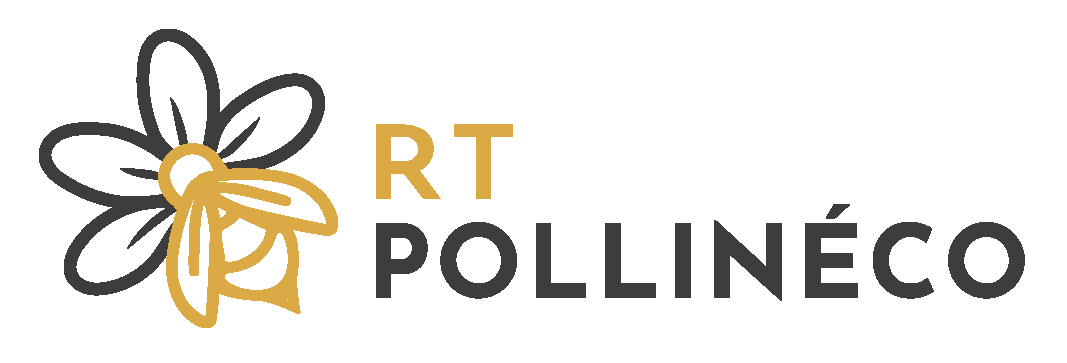(Cette annonce est dépassée de quelques jours mais il reste des places !)
Dear members,
We are pleased to announce that the AEET will give the course on » Bee taxonomy and ecology », 13 to 17 March, 2023 at the Doñana Biological Station (EBD), Seville.
Advanced course on ecology, evolution, systematics and conservation of wild bees in Europe.
Objectives:
The main objectives of this course are:
(i) to provide the attendees with a global overview on the diversity of European bees;
(ii) to highlight important aspects of wild bee ecology and conservation;
(iii) to introduce students to the identification of the main European bee genera by using ID keys and
(iv) to conduct field surveys using different sampling techniques, followed by the preparation of collected specimens for their identification in the laboratory.
More information at: https://bee-course.eu/
Target audience:
The course is aimed at people with intermediate bee identification skills who want to get experience in identifying at genus and species level, and learn more about bee ecology..
Course structure:
This course combines theory with fieldwork and specimen identification in the laboratory for a complete immersion into the world of bees!
It is a face- to- face course lasting 36 hours from Monday to Friday (4 nights, 5 days).
Characteristics:
Duration: 36 hours (4 nights, 5 days).
Language: English.
Maximum number of participants: 15 pax.
Dates: From March 13 to17, 2023
Daily schedule: Mornings and afternoons (9:00-18:00)
Venue: Doñana (http://www.ebd.csic.es/icts-donana)
Admission criteria: PhDs and Postdocs have priority but undergraduate students and young professionals are also encouraged to apply.
Required documentation: Motivation letter
Start date of the registration period: November 27, 2022
Deadline for registration: December 22, 2022
Price: AEET/SIBECOL/AIL/ SEEEE/ SPECO+ EBD members: 750€ (Membership subject to verification)- Others: 950€.
(The price includes accommodation and meals from Monday to Friday (4 nights, 5 days)
and the bus from Seville to Doñana biological Station, but not the round trip to your home).
Programme:
Monday 13th March
08:00: Bus departure at meeting point in downtown Sevilla (TBA)
10:00 – 10:15: Welcome speech by the host
10:15 – 12:30: Ice-breaking session : Flash presentation by each trainee + questions.
12:30 – 14:00: Lunch break & discussions
14:00 – 14:30: Diversity of wild bees in Europe – an update (SPM Roberts)
14:30 – 16:30: A primer of wild bee ecology and ecosystem services in Europe (NJ Vereecken)
16h30 – 17h00: Break & discussions
17:00 – 17:30: The bees of the Doñana Nature Reserve (I Bartomeus & C Molina)
Tuesday 14 March:
9:00 – 11:00: Introduction to the bee genera of Europe (laboratory) (SPM Roberts & NJ Vereecken)
11:00 – 12:00: Field surveys – what’s in my bag? (SPM Roberts)
12:15: Departure for field trip.
12:30: Lunch in the field.
13:00 – 16:00: Field surveys in the Doñana Nature Reserve (ALL)
17:00- 18:30: Back to the lab and preparation of the collected specimens (ALL)
Wednesday 15- March:
9:00-11:00: Preparation of the collected specimens and identification of the bee genera (ALL)
11:00-11:30: Break & discussions
11:45: Departure for field trip
12:00:Lunch in the field.
12:30 – 16:00: Field surveys in the Doñana Nature Reserve
17:00-18:30: Back to the lab and preparation of the collected specimens
Thursday 16- March:
9:00 – 11:00: Preparation of the collected specimens and identification of the bee genera (ALL)
11:00 – 11:30: Break & discussions
11:30 – 12:30: Plant-pollinator networks, lights and shadows of a powerful tool (I Bartomeus)
13:00 – 14:00: Lunch and discussions
14:00 – 15:00: Red List of European bees: from country to continent (SPM Roberts)
15:00 – 16:00: Break & discussions
16:00 – 18:30: Identification of the bee genera + examination (ID test) (ALL)
Friday 17- March:
09:00 – 10:00: Advances in wild bee community structure analysis (NJ Vereecken)
10:00 – 10:30:Break & discussions
10:30 – 12:00: Citizen sciences and wild bee biological records (SPM Roberts & NJ Vereecken)
12:00: Bus from Doñana to Sevilla Downtown. Lunch at Seville (self-organized).
Certification:
The organization will provide certificates of attendance and achievement, once the course completed number of teaching hours. The minimum attendance required is 90% of the total teaching hours, with no possibility of exemption for justified absence.
Academic management and teaching staff:
Ignasi Bartomeus. Coordinator (nacho.bartomeus@gmail.com)
Stuart Roberts.
Nicolas Vereeken.
Curro Molina.
Registration
Click on the « Register » link in the box in the upper right corner. The AEET secretariat will send you a notification confirming receipt of your application.
The final admission in the course will be subject to the fulfilment of the admission criteria and it will be communicated at the end of the year.
Payments:
Payment: Payment must be made by deposit or bank transfer to the following account: ES70 0073 01005804 9730 5102, in the bank Openbank before January 15th. The deposit can be made at any branch of Banco Santander.
Once the payment has been made, please send us a copy of the payment receipt to secretaria@aeet.org. Do not forget to indicate the details that must appear on the invoice.
Our tax data:
ASOCIACIÓN ESPAÑOLA DE ECOLOGÍA TERRESTRE
CIF: G50359017
Dpto. Biología y Geología
Universidad Rey Juan Carlos, URJC
c/Tulipán s/n
28933 Móstoles, Madri
For further information please get in touch with us: secretaria@aeet.org (from 9:00 to 14:00)
We hope it will be of interest to you.
We would be grateful if this announcement could be circulated.
Best regards,
